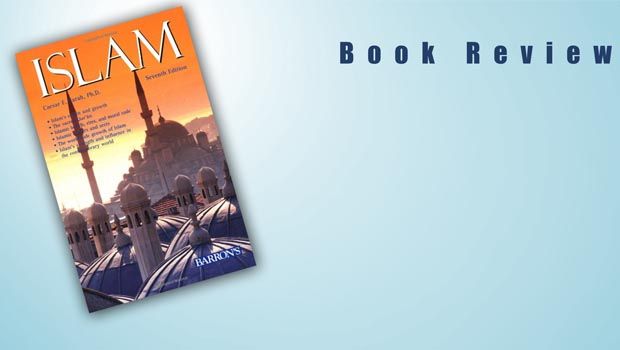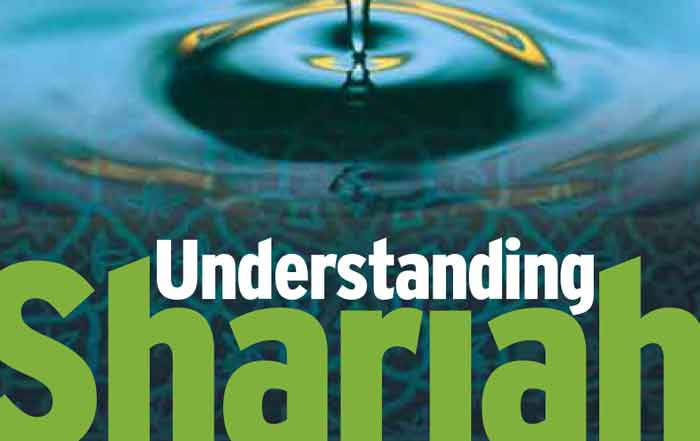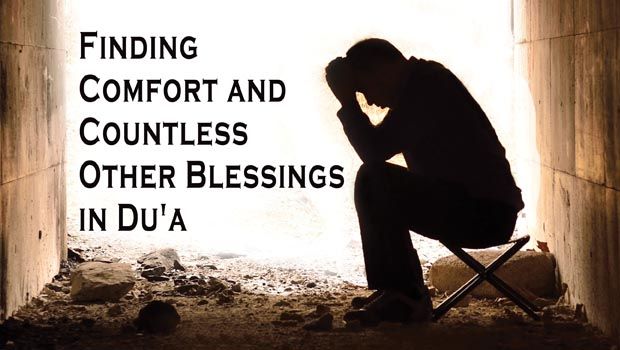Author: Caesar Farah Ph.D.
Publisher: Barron’s Educational Series, Inc.
ISBN#: 0-7641-2226-6
Year of last publication: 2003
Edition: 7th
Paperback: 512 pages
Caesar Farah, who died in 2009, was a professor of history at the University of Minnesota. He earned his B.A. in history with a minor in political science/international relations at Stanford University, and an M.A. and Ph.D. from Princeton in Middle Eastern history, languages, and literatures. Farah wrote widely and passionately about the Muslim world, and one of his books, Islam, provides an overview of the religion, adding to the growing body of scholarly work that aims to “strip Islam of the prejudicial views surrounding it.” In the first edition, the author limited his scope to Islam’s religious aspects, treating the sociopolitical and cultural aspects of the religion “only to the extent that they materially influenced the fundamentals and observances of the faith.” Published two years after 9/11, the seventh edition, here under review, presents a contemporary update with the author shedding light on the “little understood religion” and the causes of extremism and acts of terror that “belie the true teachings of the faith.”
Dr. Farah’s scholarly inquiry of the religion and its adherents, being principally reasonable and fair, is counterintuitive to the many forces that contrive to keep fear and hatred of Islam alive.
Some have suggested that Farah takes a positive and supportive tone and approach to his treatment of Islam. Given his lifelong dedication to acquiring knowledge of and teaching about Islam, and his vantage point from outside the fold of believers in the faith, that perception is significant. His scholarly inquiry of the religion and its adherents, being principally reasonable and fair, is counterintuitive to the many forces that contrive to keep fear and hatred of Islam alive and ever burgeoning. Farah’s aim is to do his part to move the dynamic between the West and the world of Islam beyond a time when “the Western world, at the very best, had contented itself with a distorted understanding of one of mankind’s significant living religions.”
Farah begins his overview of Islam by looking at the land and the people of Arabia, and most importantly the man, Muhammad, who by his genius, formidable personality, and dedication to the Message, revolutionized the Arabian Peninsula. The author then devotes a chapter to the Qur’an, its periods of revelation, its codification and exegesis, and the translation into many languages that were done at subsequent times. He also covers the fundamentals of Islamic beliefs and rituals, and the moral obligations upon adherents of the faith, as well as the institutions that bring about solidarity among the community of believers. Farah surveys the sects within Islam, including those that are considered outside the orthodoxy by the vast majority of Muslims. After chapters on reform movements and the resurgence of Islam throughout the world, Farah devotes three chapters — Islam in Transition, Current Trends, and Perspectives on Activist Islam — to the geopolitical stratagems that keep the dynamic between the Islamic and Western worlds one in which “war continues taking precedence over attempts at understanding and reconciliation.” Farah offers important insights to add weight on the side of mutual respect and the resolve to find commonalities upon which to build more peaceful relations. With extensive footnotes, a glossary for readers unfamiliar with Islamic terms, and a “recommended reading” list, Islam is a very worthwhile book.






